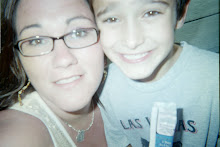It's hard to imagine your child using marijuana. But chances are, kids today will be faced with, "Should I or shouldn't I?" Young people have many stresses and the notion that "drugs will make you feel better" can have a lot of appeal. Also, youth might see drugs as something to experiment with or something that can help them fit in.
Research has shown that many parents today are ambivalent about drugs such as marijuana. Some consider it to be relatively risk-free and are more concerned about drugs such as cocaine or ecstasy. The wake-up call for parents, however, is that marijuana is not a harmless drug. It's time to teach your child that the answer to the marijuana question is, "I shouldn't, and I won't."
The drugging of America's schoolchildren for behavioral and emotional problems has been a scandal for at least two decades. Just when you thought things couldn't get worse, a new report shows that the prescribing of psychiatric drugs to children under the age of six has increased dramatically between 1991 and 1995. Here's one astounding statistic from the reports introduction: 3,000 prescriptions for the antidepressant, Prozac, were written in 1994 alone for infants younger than one year. This trend is alarming because there is no evidence of safety or efficacy for any of these drugs in children under age six.
The new report by Julie Magno Zito, PhD, University of Maryland, and colleagues, is based on the records of over 200,000 children between the ages of two and four who live in the Midwest and Eastern U.S. and were enrolled in an HMO or one of two Medicaid programs (JAMA, 2/23/00). The findings suggest that "1% to 1.5% of all children two to four years old enrolled in these programs are receiving stimulants, antidepressants, or antipsychotic medications," according to the editorial that accompanied the report. The largest increases in prescriptions were shown for stimulants, antidepressants, and the antihypertensive, clonidine (brand name: Catapres). Stimulants purportedly have the reverse effect in children. These drugs, most notably Ritalin, are primarily prescribed for a condition that some experts believe is nonexistent: attention deficit hyperactivity disorder (ADHD).
To Peter R. Breggin, MD, the maverick psychiatrist and author of Talking Back to Ritalin: What doctors aren't telling you about stimulant drugs, "ADHD has one over-riding purpose--to put a medical veneer on the use of medication to control the behavior of children." According to the American Psychiatric Associations Diagnostic and Statistical Manual of Mental Disorders, a child has ADHD if he or she has six or more of the following symptoms for six months: "often fidgets with hands or feet or squirms in a seat; often leaves seat in classroom or in other situations in which remaining seated is expected; often runs about or climbs excessively in situations in which it is inappropriate; often has difficulty playing or engaging in leisure activities quietly; often 'on the go' or often acts as if 'driven by a motor;' often talks excessively; often blurts out the answer before questions have been completed; often has difficulty awaiting turn; often interrupts or intrudes on others." By this diagnostic definition, virtually all preschoolers may be headed for long-term drug therapy. Not surprisingly, boys are given 80% of the prescriptions for stimulants.
According to Dr. Breggin, there are no objective diagnostic criteria for ADHD, "no physical symptoms, no neurological signs, and no blood tests. Despite claims to the contrary, there are no brain scan findings and no biochemical imbalances. No physical tests can be done to verify that a child has 'ADHD.'" Ritalin has been on the market for over 30 years, he says, but no study has proved safety and efficacy beyond a few weeks.
The new report by Dr. Zito and colleagues notes that cardiovascular adverse effects have been reported in young children taking clonidine in combination with other medications. But the investigators did not explain why doctors would prescribe antihypertension drugs to children. Psychologist Dominick Riccio, PhD, of the International Center for the Study of Psychiatry and Psychology, was asked for his opinion as someone who has followed the field for years. "One possible explanation could be that when Ritalin and other amphetamine-like drugs don't work and may even cause the very symptoms they're purported to reduce, doctors add clonidine or anti-anxiety drugs to treat the side effects of the Ritalin, such as insomnia and nervousness," answered Dr. Riccio, in a telephone interview. "Polypharmacy--that is, prescribing more than one drug--generally is bad psychiatry because it is not clear what's having the 'therapeutic' effect and you don't know what's causing the side effects when they occur."
Monday, April 6, 2009
Subscribe to:
Post Comments (Atom)


No comments:
Post a Comment